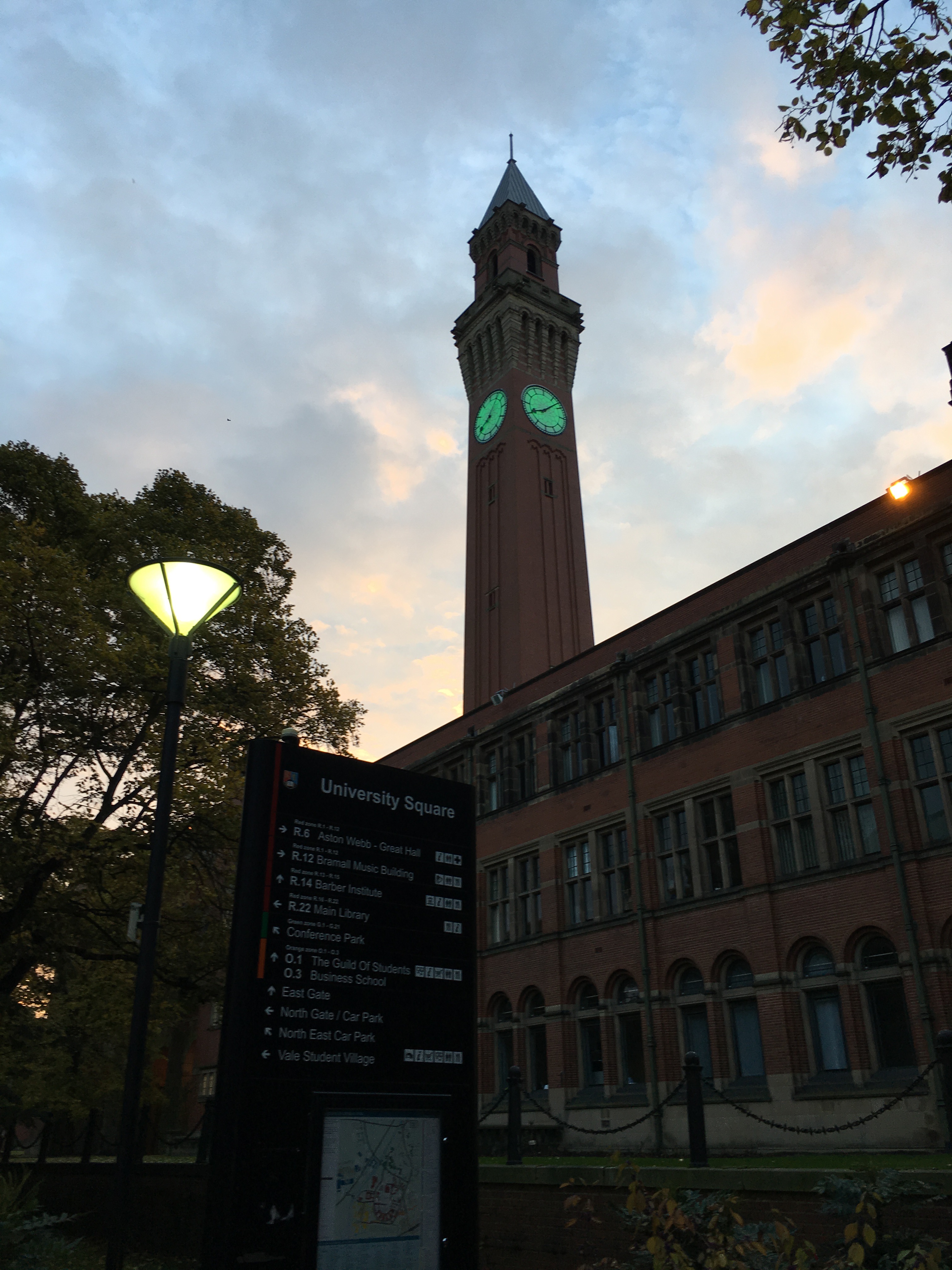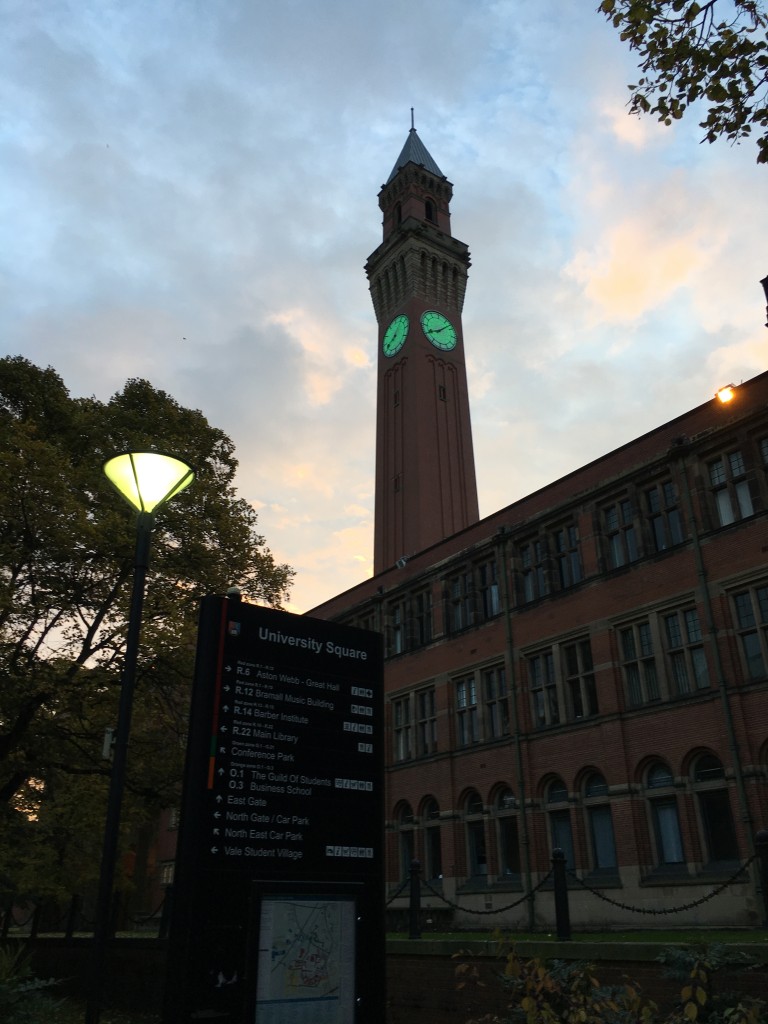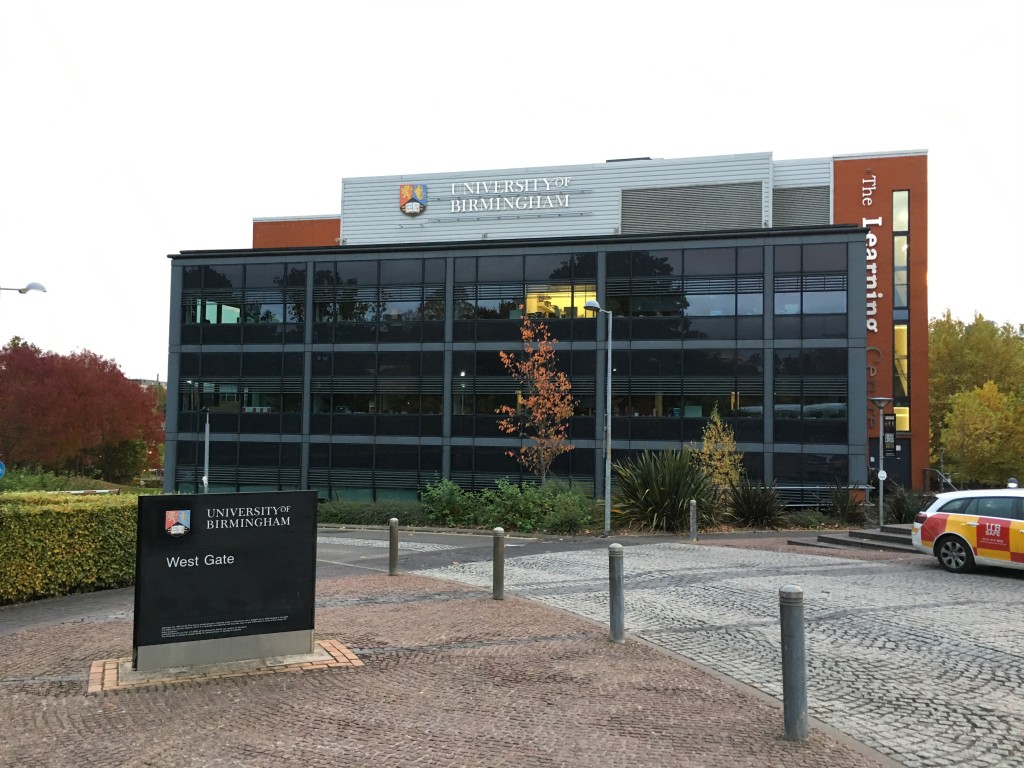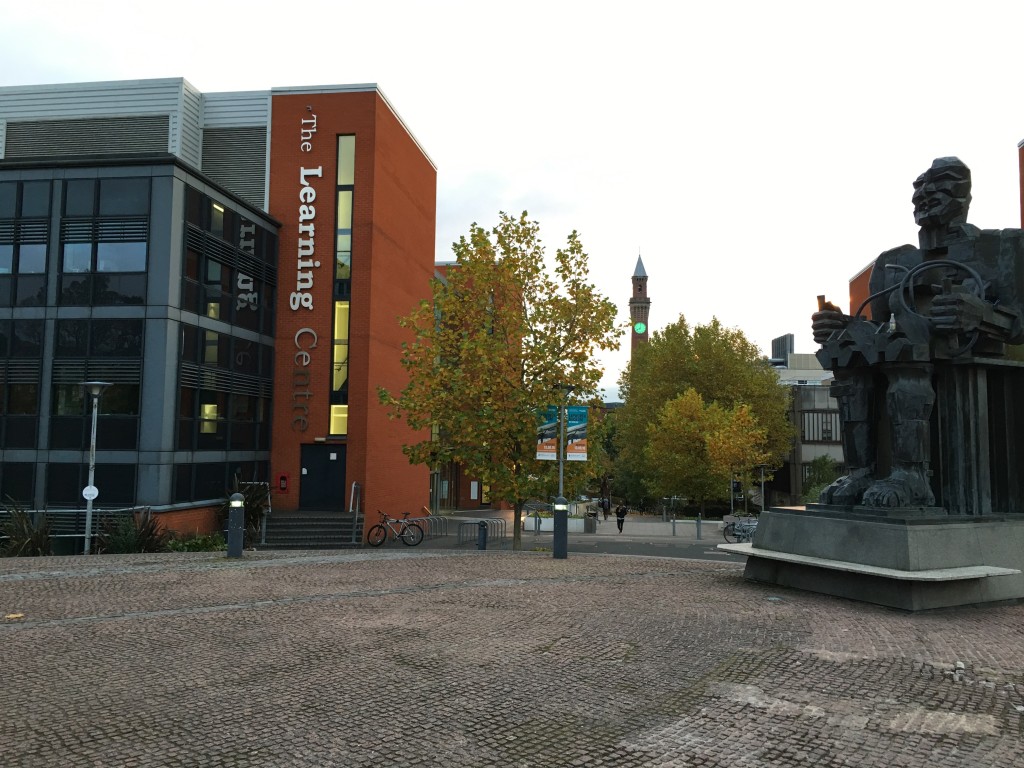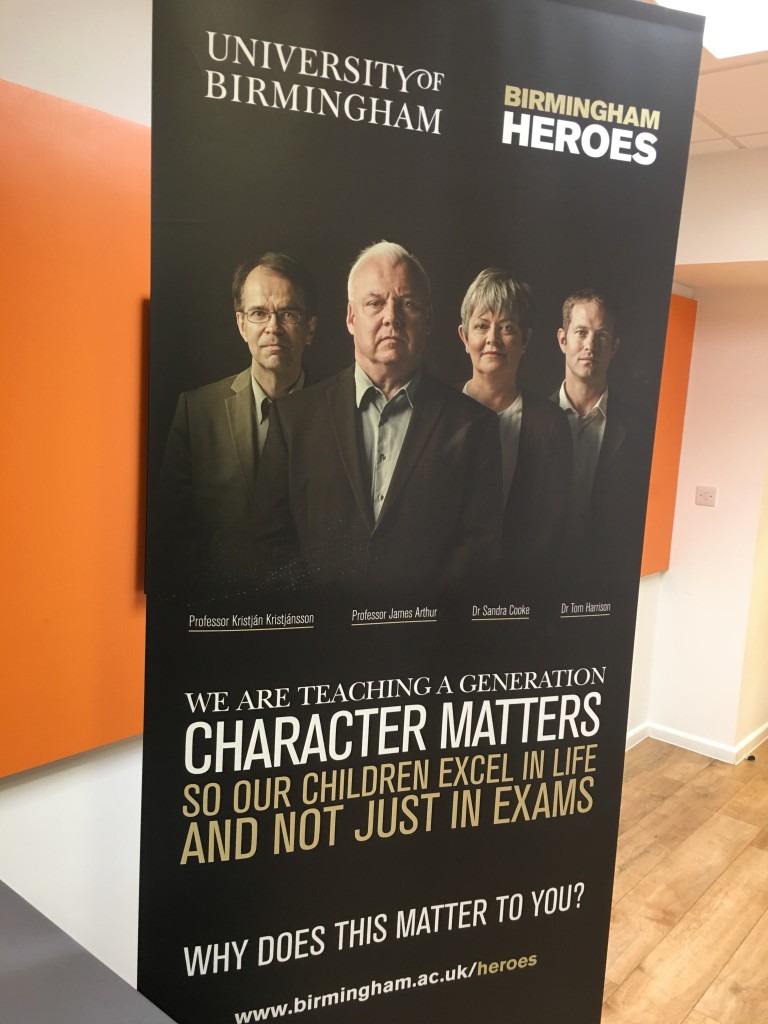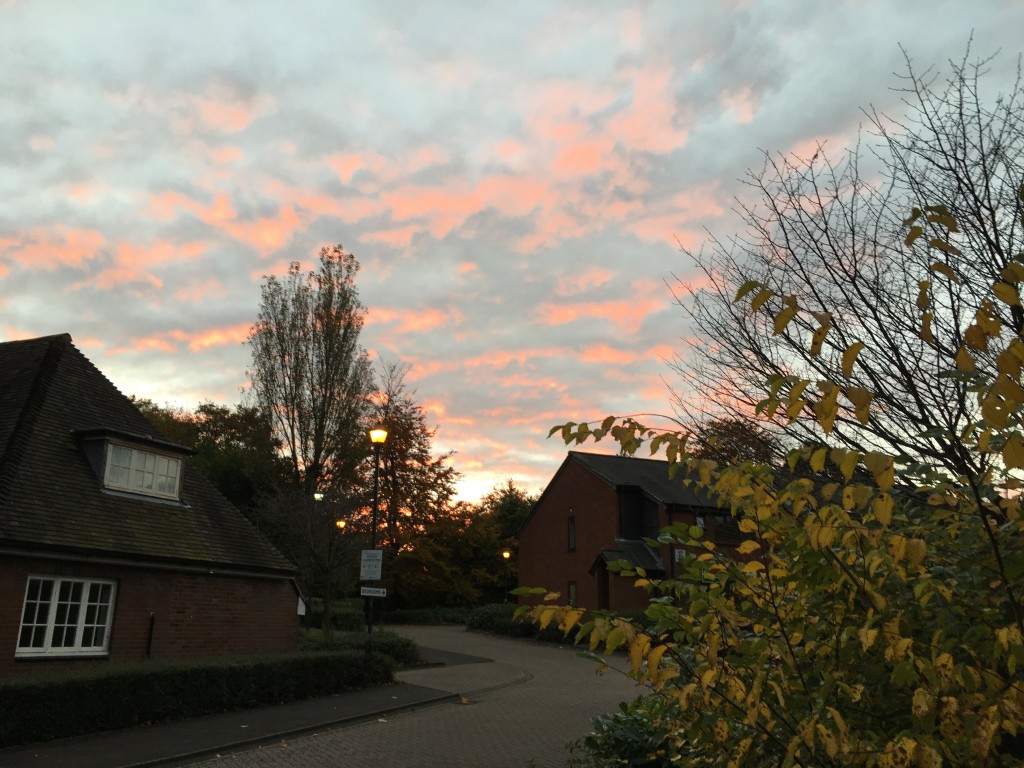From October 26-28, I was part of a delegation from the National University of Singapore attending a meeting at Birmingham University, entitled “What is Teaching Excellence in a Contemporary Research-Intensive University?” The meeting was convened by the Universitas 21 Network, a global coalition of leading research-intensive universities from across Asia, the US, Africa and Europe. The diversity of the attendees was really remarkable – and I had a chance to talk about higher education with a very interesting group of colleagues from South Africa, Ireland, Scotland, the UK, Malaysia, and of course the US! Our project was to create a “Position Statement” to answer the question which provided the title of the meeting. The meeting conveners came up with this summary of the meeting’s purpose:
“The purpose of this conference is for U21 colleagues to come together, with international experts in the field, to design a ‘Position Statement’ on the unique features of research-led teaching/education in a contemporary research-intensive university. The Position Statement emerging from this conference will make an important contribution to the ongoing work of the U21 Educational Innovation Cluster on developing, enhancing, recognising and rewarding teaching excellence in a research intensive context; this work is due to be presented to U21 Presidents at their Annual General Meeting in May 2017. U21 delegates at the conference will have the opportunity to reflect on existing evidence about teaching excellence in higher education, situate this evidence in the challenges facing contemporary research-intensive universities, revisit the meaning of ‘research-led teaching/education’ and to ensure that their views, and those of their institutions, form part of U21’s work in educational innovation.”
The meeting had an interesting structure where we received “Expert Evidence” from thought leaders in higher education, and then convened in our working groups to incorporate this expert evidence into our written position piece. The experts and their talks are listed below with short “takeaways” from my own notes and thoughts. At the end is the summary of our working group’s production of the position statement, along with some nice photos of the region around Birmingham England. It was a real honor to represent NUS at this international meeting and to meet some of the exciting colleagues and experts that were present.
Our working group came up with this statement:
Introduction
The research intensive university has a culture in which the undergraduates are full partners in the research endeavour of the institution. The role of the RI U is in developing full human potential for excellence in scholarship and the creation of knowledge
The research intensive university is characterised by –
- Leadership that is research informed and nurtures a growth mind-set in all members of the community
- The creation of a learning community in which students and scholars are generating and contesting knowledge collaboratively
- Teaching that embodies the same core principles of research and the same rules of academic engagement. This includes discussion and debate, critical review, learning from failure.
- Teachers with deep expertise, experience, conviction that comes from their authentic connection to the curriculum through research and scholarship
- A research-intensive university inspires its students to become next generation researchers and leaders through their exposure to developing their capacity for critical thought and exposure to different epistemologies and methodologies that are research-led
- A research intensive university provides its students with the capacity to create new meanings by imbuing its teaching with the various components that make research successful such as creativity, imagination, resilience and deep capacity for questing and imagining of new possibilities.
Conclusion
Reward and recognition processes are clearly aligned with a values system in which synergistic interactions between teaching and research are celebrated and normalised. Commitment to small group teaching in which undergraduates are exposed to open dialogue and discussion that is research-based.
The working group included Amanda Gibney from University College, Dublin, Ireland, Bryan Penprase from Yale-NUS College, Singapore; Simon Bates from University of British Columbia, Canada, Sarah Speight from University of Nottingham, UK, Wendela Wapenaar from Nottingham University, UK, and S. Busiom from the University of Johannesburg.
amanda.gibney@ucd.ie <amanda.gibney@ucd.ie>
simon.bates@ubc.ca <simon.bates@ubc.ca>
Sarah Speight <sarah.speight@nottingham.ac.uk>
sibusiom@uj.ac.za <sibusiom@uj.ac.za>
Wendela Wapenaar <wendela.wapenaar@nottingham.ac.uk>
Expert Evidence 1
‘What is ‘teaching excellence’ and how is teaching improved?’
Professor Graham Gibbs, (formerly of Oxford and Oxford Brookes universities, UK)
Expert Evidence 2
‘Learning Gain in higher education: conceptualisation and measurement’
Professor Jan Vermunt (University of Cambridge, UK)
‘Learning Gain: career readiness and employability’
Dr. Eluned Jones (Director, Careers Network, University of Birmingham, UK)
Expert Evidence 3
Learning from the U21 Network
‘Presenting the evidence: Constructs, policies, practices and attitudes towards teaching in U21 institutions – findings from across the network’
Professor Stephen Marshall (University of New South Wales, Australia) Professor Graeme Aitken (University of Auckland, New Zealand)
Professor Simon Bates (University of British Columbia, Canada)
In this session, we will report on the activities and findings of two interrelated EI cluster projects over the last two years. The first of these has been to develop and validate a shared framework for teaching excellence and leadership in education that can be used to guide practice across the network for evaluating teaching contributions as part of our academic promotion processes. The second project will report findings from a recent survey of teaching practices and attitudes across a number of U21 institutions. Together, the framework and the baseline data on practices and attitudes will form the basis of planned training and development opportunities for an identified pool of individuals within and across institutions so that they can become recognised members of a U21 College of Peer Reviewers of Teaching.
Expert Evidence 4
‘What is excellent teaching from a student learner perspective?’
Student Panel
Expert Evidence 5
‘How teachers build credibility and authenticity in students’ eyes?’
Professor Stephen Brookfield (University of St. Thomas, Minnesota, USA).
Here are some images from University of Birmingham – and some of the beautiful sunsets and fall colours of England.

